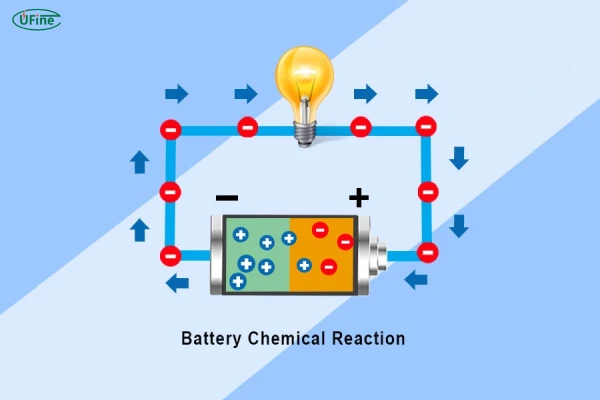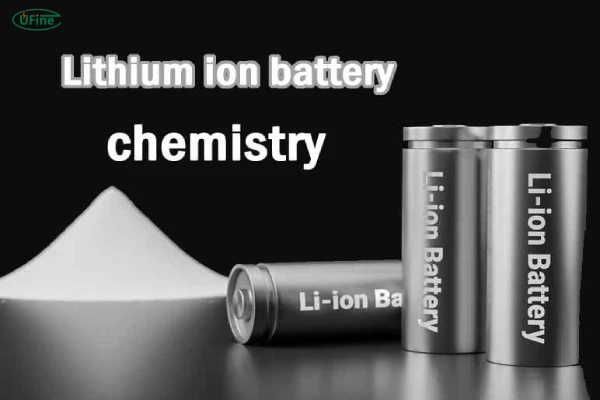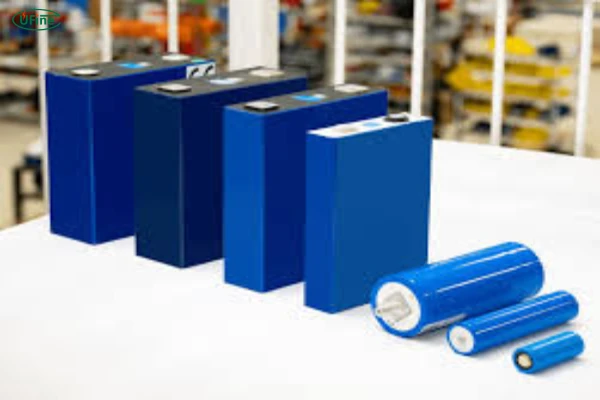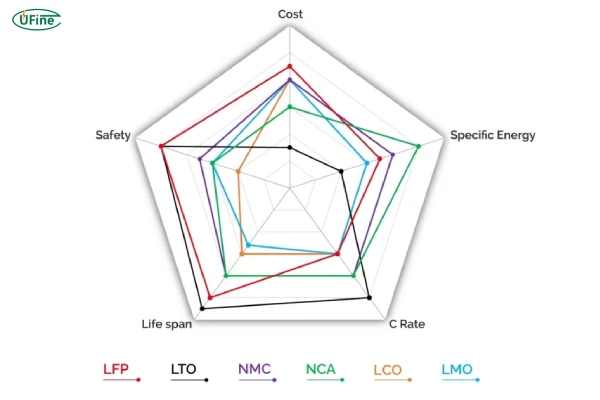
Part 1. What is battery chemistry?

To truly understand how batteries work, we must first dive into battery chemistry—the heart of every battery.
In simple terms, battery chemistry refers to the specific combination of chemicals used inside a battery to store and release energy. These chemicals interact in electrochemical reactions, allowing the battery to generate electrical power. This isn’t just scientific jargon—this chemical dance determines almost every performance metric of a battery: its energy capacity, lifespan, stability, weight, and even how safe it is.
Think of it like the engine of a car. Two vehicles might look the same on the outside, but their engines make them perform very differently. Likewise, batteries with different chemistries can behave in radically different ways, even if they are the same size or voltage.
In a world where we depend on portable power more than ever—from smartphones to electric vehicles to backup solar systems—understanding battery chemistry isn’t just helpful, it’s essential.
Part 2. How does battery chemistry affect battery performance?

The chemistry inside a battery influences everything about how that battery behaves. Some chemistries are optimized for energy density. Others focus on safety or durability. Let’s break down how different battery chemistries affect performance:
➤ Energy Density
This refers to how much energy a battery can store relative to its size and weight. Chemistries like Lithium-ion (Li-ion) offer high energy density, making them perfect for smartphones, drones, and electric vehicles where space and weight are limited.
➤ Charge and Discharge Rate
Some batteries charge quickly and can deliver energy rapidly when needed. For instance, Lithium Polymer (LiPo) batteries, a subtype of Li-ion, are used in RC cars and drones because of their high discharge rate. Battery chemistry directly impacts how fast energy can move in and out of the cell.
➤ Cycle Life
This is the number of complete charge-discharge cycles a battery can endure before its capacity starts to drop significantly. LiFePO4 (Lithium Iron Phosphate) chemistry can easily handle 2,000 to 5,000 cycles, making it ideal for solar storage systems and electric vehicles that demand long-term use.
➤ Safety
Some battery chemistries are more volatile than others. For example, traditional Li-ion batteries can be prone to thermal runaway (overheating and catching fire) if not managed properly. In contrast, LiFePO4 offers excellent thermal and chemical stability, making it a much safer choice.
➤ Temperature Tolerance
Chemistry affects how a battery performs in extreme temperatures. Some battery chemistries, like NiMH (Nickel-Metal Hydride), perform poorly in freezing temperatures, while others like LiFePO4 can handle wider temperature ranges.
So when choosing a battery, it’s not just about the voltage or brand. It’s about the chemistry—because the right chemistry delivers the right performance.
Part 3. Popular types of battery chemistry explained
Let’s explore the most widely used battery chemistries today. Each has its own strengths, weaknesses, and best-use scenarios.
1.Lithium-ion (Li-ion)
Battery Chemistry: Lithium Cobalt Oxide (LiCoO₂) or variations
- Energy Density: Very high
- Cycle Life: Moderate (~500-1,000 cycles)
- Safety: Needs protection circuit
- Use Cases: Phones, laptops, power tools, EVs
- Emotional Note: This is the battery that powers our daily lives. Sleek, powerful, and compact—but it requires care.
2. Lithium Iron Phosphate (LiFePO4)
Battery Chemistry: LiFePO₄
- Energy Density: Lower than Li-ion
- Cycle Life: Extremely long (~2,000–5,000+ cycles)
- Safety: Excellent thermal stability
- Use Cases: Solar systems, RVs, electric buses, home battery storage
- Emotional Note: The marathon runner. If you’re in it for the long haul, LiFePO4 is your reliable companion.
3. Nickel-Metal Hydride (NiMH)
Battery Chemistry: Nickel oxyhydroxide and metal hydride
- Energy Density: Medium
- Cycle Life: Moderate (~500 cycles)
- Safety: Good
- Use Cases: AA/AAA rechargeable batteries, older hybrid cars
- Emotional Note: The unsung hero of household electronics. Not flashy, but dependable.
4. Nickel-Cadmium (NiCd)
Battery Chemistry: Nickel oxide hydroxide and cadmium
- Energy Density: Low
- Cycle Life: Decent, but memory effect is a problem
- Safety: Contains toxic cadmium
- Use Cases: Industrial tools, emergency systems
- Emotional Note: Tough and rugged, but outdated. Has served well, but fading fast.
5. Lead-Acid
Battery Chemistry: Lead dioxide and sponge lead in sulfuric acid
- Energy Density: Low
- Cycle Life: Short (~300–500 cycles)
- Safety: Fair, but heavy and corrosive
- Use Cases: Cars, UPS systems, forklifts
- Emotional Note: Old-school workhorse. Heavy, cheap, and gets the job done—until it doesn’t.
Part 4. Comparison of different battery types
| Battery Type | Energy Density | Cycle Life | Safety | Cost | Common Use |
|---|---|---|---|---|---|
| Li-ion | Very High | Moderate | Medium | $$$ | Electronics, EVs |
| LiFePO4 | Medium | Very High | High | $$ | Solar, RVs, EVs |
| NiMH | Medium | Medium | High | $$ | Toys, remotes |
| NiCd | Low | Moderate | Low | $ | Power tools |
| Lead-Acid | Low | Low | Medium | $ | Cars, UPS |
As you can see, there’s no one-size-fits-all. The best battery chemistry depends on your goals—whether that’s long-term reliability, quick power, or cost savings.
Part 5. Which chemistries are best for long-term use?
Now, if you’re thinking long-term—years of reliable service without constant replacements—two chemistries clearly rise to the top.
LiFePO4 Battery Chemistry
- Why it wins: Offers unmatched cycle life (2,000 to 5,000+ cycles), excellent safety, and stability across temperature extremes.
- Ideal for: Solar energy storage, RVs, electric buses, off-grid systems.
- Emotionally: It’s the kind of battery that gives you peace of mind. Install it and forget it—for years.
Li-ion Battery Chemistry
- Why it works: High energy density, decent lifespan (500–1,000 cycles), and suitable for portable devices.
- Ideal for: Smartphones, drones, laptops, and EVs.
- Emotionally: The go-to solution for daily convenience and power-hungry devices.
If longevity and safety are your top concerns, LiFePO4 battery chemistry is hands down the best option.
Part 6. FAQs
Why is LiFePO4 considered the safest battery chemistry?
Because it doesn’t overheat easily, is chemically stable, and doesn’t explode under stress. That’s a big deal in solar and EV applications.
What is the “memory effect” in batteries?
It mostly affects NiCd batteries. If not fully discharged before recharging, they “remember” a lower capacity, leading to reduced runtime.
Is higher energy density always better?
Not necessarily. While Li-ion has high energy density, it may trade off in safety or lifespan. It depends on your application.
Can I switch battery chemistries in my device?
Only if the voltage, size, and charger match. Always check manufacturer recommendations to avoid damage or safety risks.
Which battery chemistry is best for cold weather?
LiFePO4 performs well in a wide temperature range, but specially designed Li-ion batteries can also work in colder environments.
Related Tags:
More Articles

고방전 배터리는 높은 전류와 발열로 배터리수명이 줄어듭니다. 구조적 한계, 사용 패턴, 충전 습관 등 실제 수명 단축 요인을 체계적으로 분석했습니다.
Capacitor vs Battery: What is the Difference?
Capacitor vs battery explained in detail. Learn the difference between capacitor and battery in energy storage, charging speed, lifespan, and real applications.
18650 Battery vs AA: Which Is Better for Your Device?
Compare 18650 vs AA batteries in capacity, voltage, rechargeability, and applications. Learn which battery type fits high-drain or everyday devices.
What is the Difference Between Battery Cell, Battery Control Module, and Battery Pack?
Compare battery cells, modules, and packs. Learn functions, design differences, control modules, and selection tips for EV, ESS, and industrial use.
How to Prevent LiPo Battery Explosion?
Can LiPo batteries explode or catch fire? Learn key causes of LiPo battery fires and proven charging, storage, and handling tips to reduce explosion risk.





